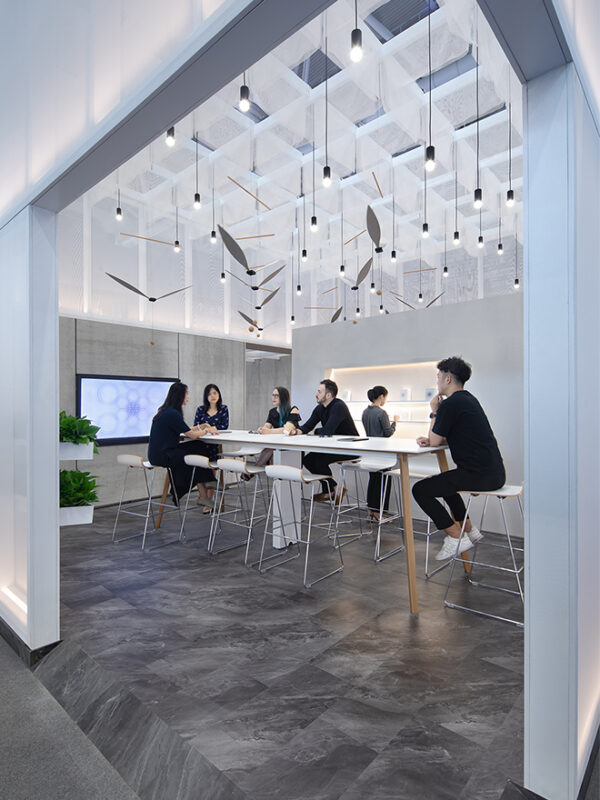在“未来办公论坛:构建以未来为导向的办公空间”研讨会中,办公空间策略总监Nancy Liu就灵活办公和企业文化差异下的办公空间设计进行了观点分享。在谈到灵活办公的意义时,Liu讲到,“灵活办公的意义在于给员工自由的选择,当企业赋权员工的时候他们会看到意想不到的表现。”在谈到灵活办公的意义时,
Liu讲到,“灵活办公的意义在于给员工自由的选择,当企业赋权员工的时候他们会看到意想不到的表现。
在今年8月底结束的2020国际工作环境设计应用展上,穆氏与业界同仁、企业客户和研究学者共襄盛举,透过展览和演讲对谈的形式,分享了我们在办公空间设计领域的经验和见解。
Nobody knows what the future workplace will look like, but the principles of human-centric design remain strong.
Key concepts of “The Cloud” were introduced in a live presentation, accompanied by a video story of the design process. M Moser also led an audience and media tour of the space to explore its features.
Watch the video to explore the “behind-the-scenes” design story.

Key concepts of “The Cloud” were introduced in a live presentation, accompanied by a video story of the design process. M Moser also led an audience and media tour of the space to explore its features.
在与展览同期举办的“中国大湾区商办地产暨工作环境设计”论坛上,办公空间策略副总监Jason Chiang发表演讲《寻找商办地产“出圈”之路:打造从独立专业到协作共赢的办公环境生态圈》,从办公环境设计如何支持商业地产租户的业务发展的角度,探讨了未来办公设计的演变方向,以及产业链合作方式的升级。
以Diageo、普华永道“乐创工坊”、凯华国际中心等项目经验为例,Chiang提出将品牌、技术、旅程和社区因素综合在一起,打造更具有紧密联系的办公环境。
在“未来办公论坛:构建以未来为导向的办公空间”研讨会中,办公空间策略总监Nancy Liu就灵活办公和企业文化差异下的办公空间设计进行了观点分享。在谈到灵活办公的意义时,Liu讲到,“灵活办公的意义在于给员工自由的选择,当企业赋权员工的时候他们会看到意想不到的表现。”在谈到灵活办公的意义时,
Liu讲到,“灵活办公的意义在于给员工自由的选择,当企业赋权员工的时候他们会看到意想不到的表现。
Click here to watch the video on YouKu
Knowledge-sharing + Panel | Embracing collaborative partnerships for future work environments
In addition to the exhibition, Workplace Strategy Associate Director, Jason Chiang also spoke at the Workplace Forum for Commercial Office Real Estate. In “Pathfinding in the new era of commercial real estate— creating user experiences to synergise stakeholders”, he discussed how to support office property tenants with effective workplace design solutions. Chiang shed light on workplace design trends as well as a need to consolidate industry resources to facilitate future development.
Using project examples including Diageo, the PwC PlayLab and Kai Hua Group Central Tower, Chiang explored how interweaving brand, technology, user journey and community building can create more connected work environments.